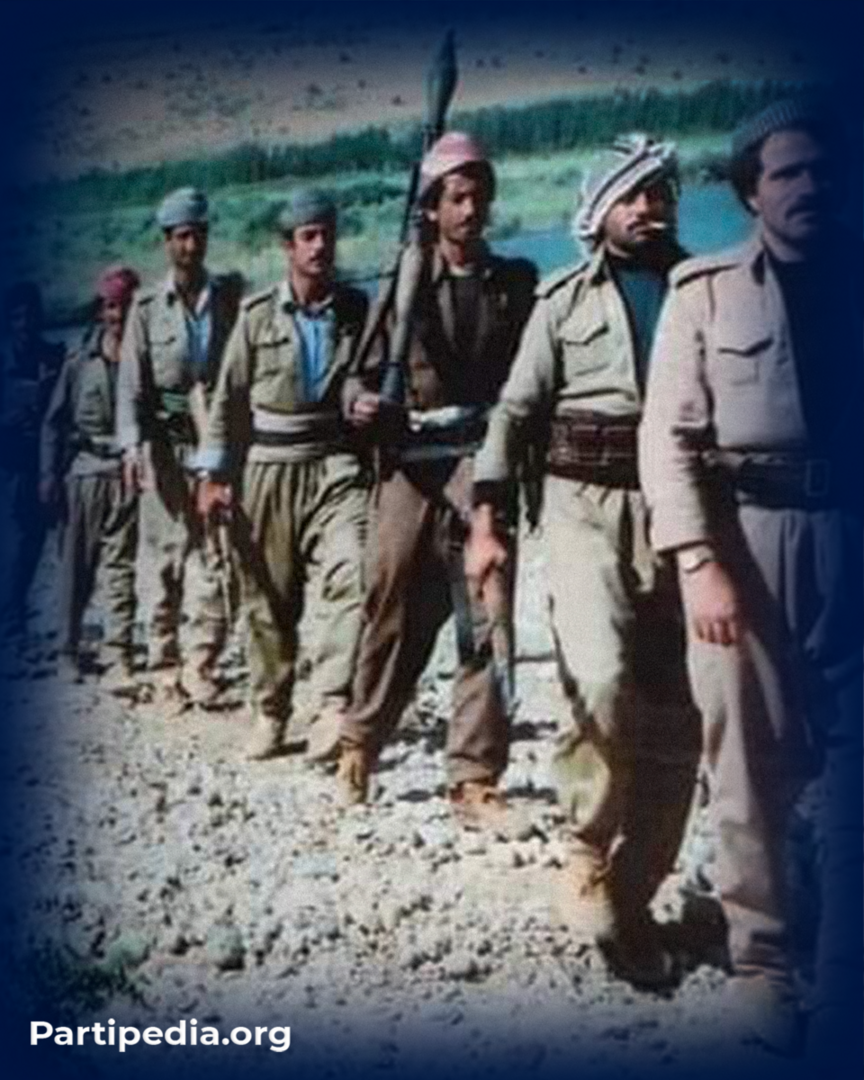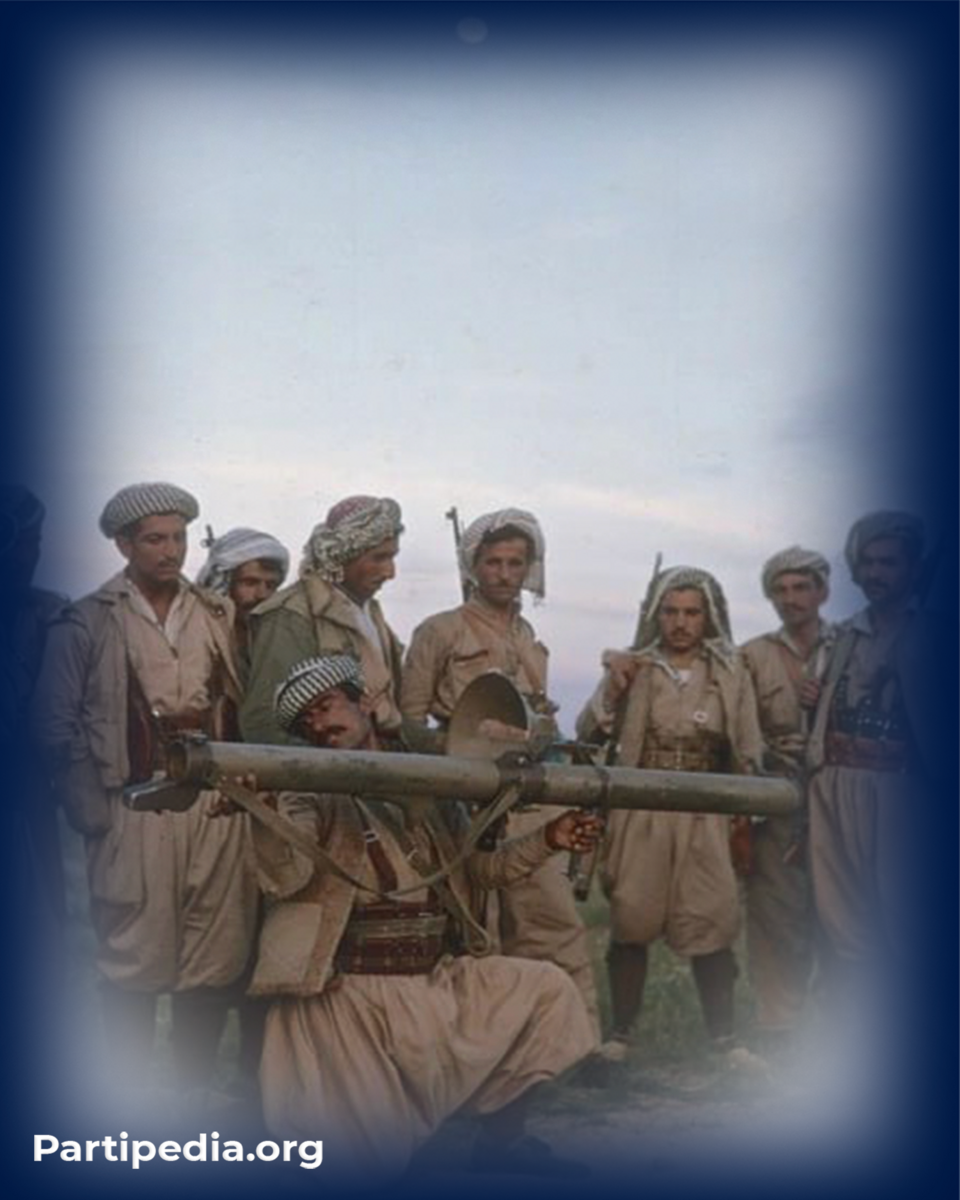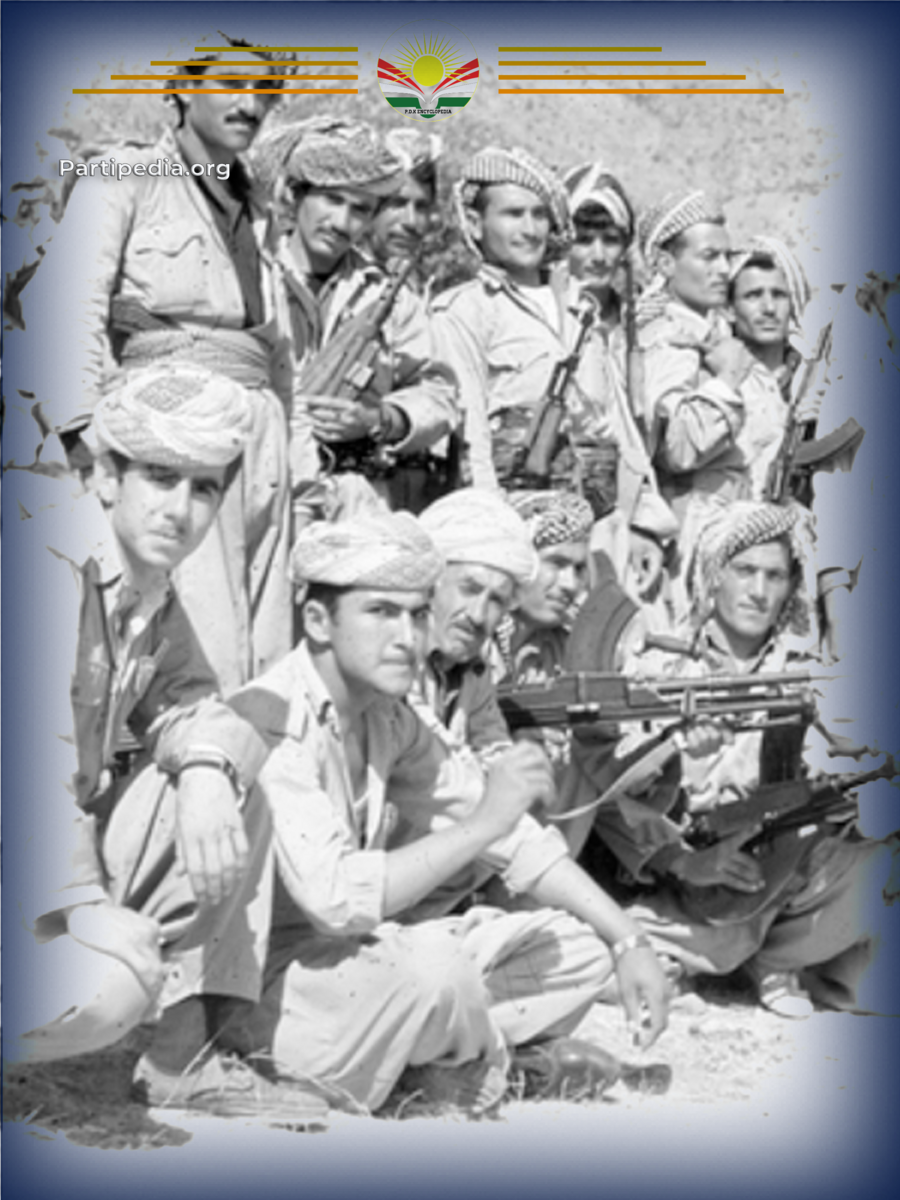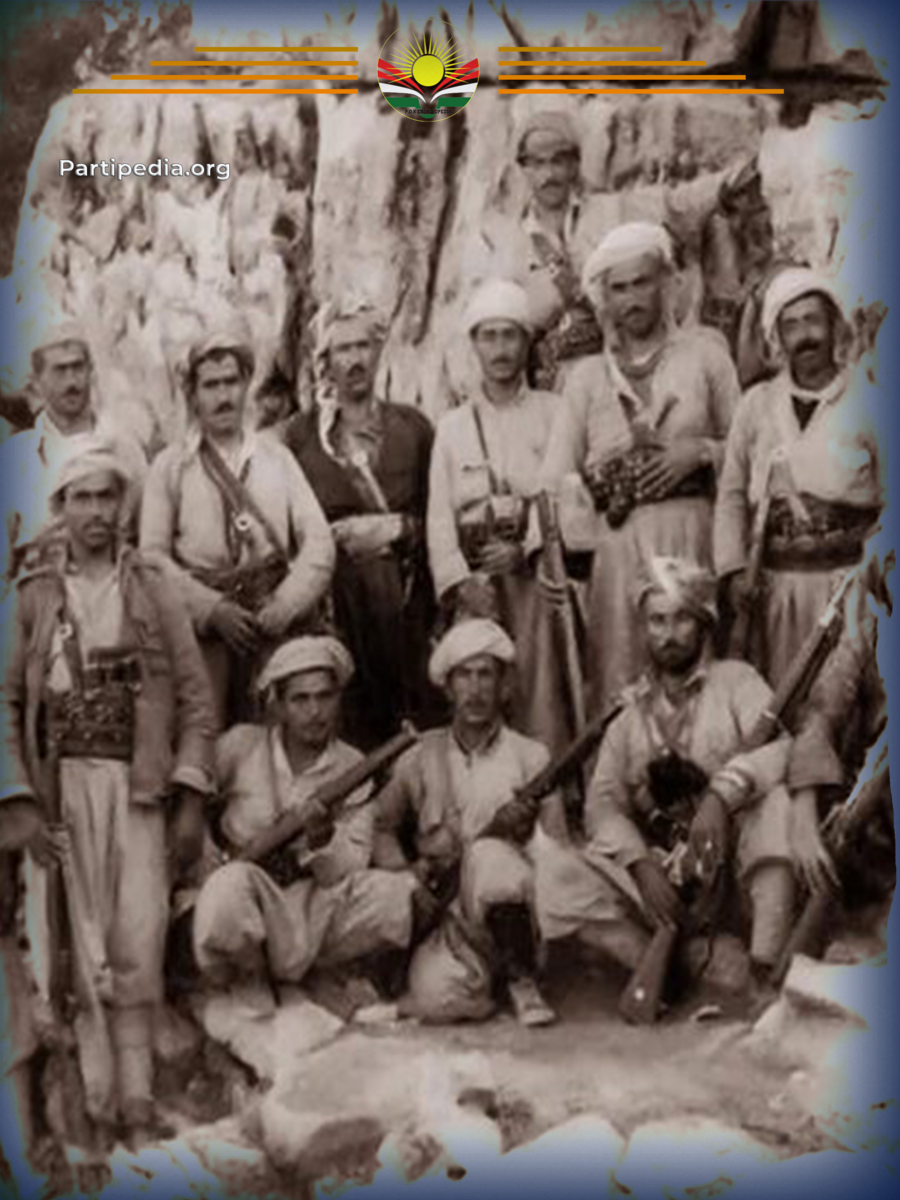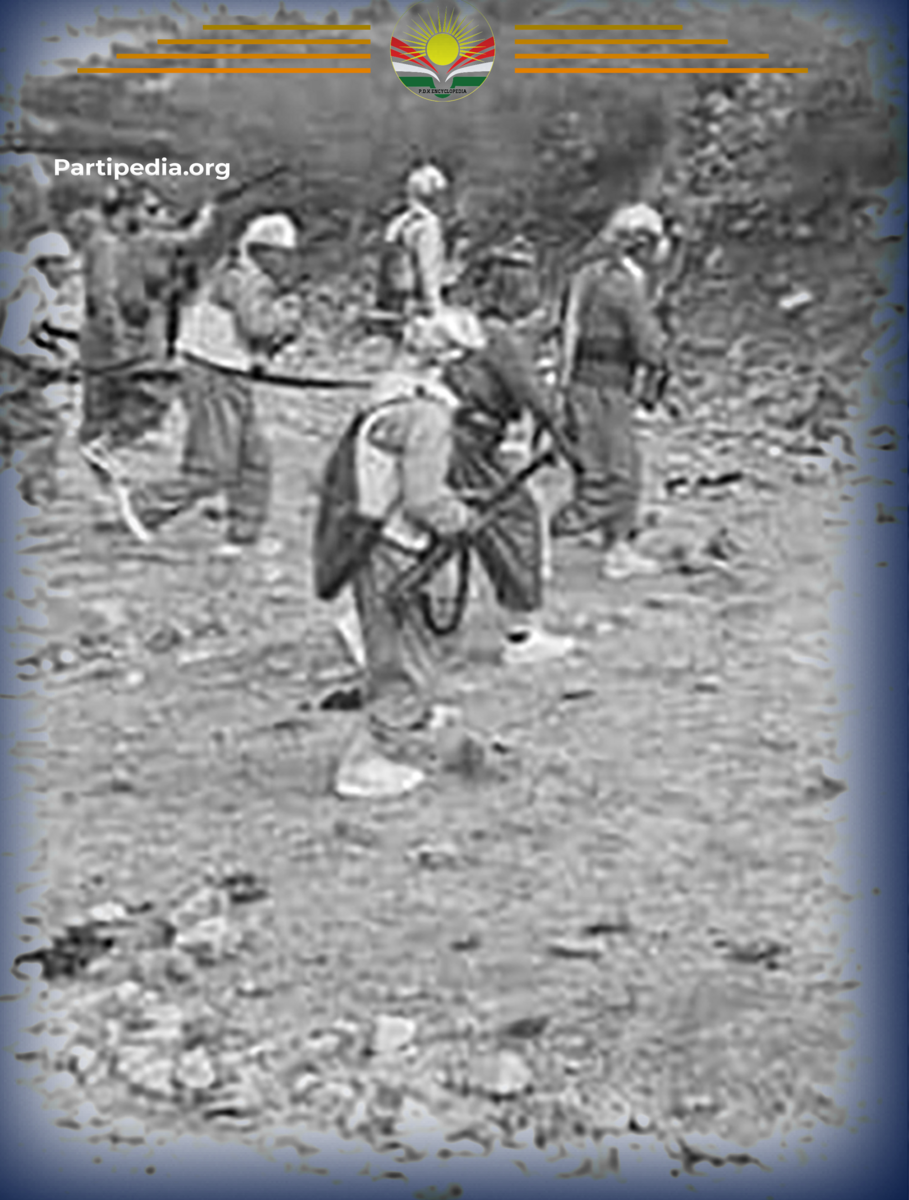The battle of Grda Hul marked a significant blow dealt to a defensive checkpoint of the Iraqi military by the Peshmerga forces of the Kurdistan Democratic Party (KDP) during the Gullan Revolution. Taking place on the night of August 12-13, 1985, the operation was carried out by a coalition of Peshmerga fighters from the Kurdistan Democratic Party (KDP) and the Communist Party of Kurdistan (CPK). The mission began as a routine tour in the Batifa area of Duhok Province, aimed at visiting Peshmerga ranks and engaging with local citizens. However, during this reconnaissance, the Peshmerga leaders made the strategic decision to launch a guerrilla operation. Their target was the Iraqi military checkpoint at Grda Hul, a position of strategic importance. With their hallmark precision and tactical expertise, the Peshmerga forces executed the operation, delivering a substantial blow to the enemy's defenses. This action not only demonstrated their operational strength but also underscored their unwavering commitment to the Kurdish cause during the Gullan Revolution.
The operation delivered a significant blow to an Iraqi military defensive checkpoint, carried out by Peshmerga forces of the Kurdistan Democratic Party (KDP) during the Gullan Revolution. On the night of August 12-13, 1985, a coalition of Peshmerga fighters from the Kurdistan Democratic Party (KDP) and the Communist Party of Kurdistan (CPK) undertook a mission in the Batifa area of Duhok Province.
Initially intended as a routine visit to inspect the ranks and connect with the local population, the tour evolved into a decision to launch a guerrilla attack. The chosen target was the strategically important Iraqi military checkpoint at Grda Hul.
Demonstrating their tactical acumen and precision, the Peshmerga forces successfully carried out the operation, delivering a heavy blow to the enemy's defenses. This act further showcased their steadfast dedication to the Kurdish cause during the Gullan Revolution.
The temporary Iraqi military outpost was strategically located in the western part of the town of Batifa. On the night of August 12-13, 1985, Peshmerga forces of the Kurdistan Democratic Party (KDP) and the Communist Party of Kurdistan (CPK), operating under the joint Kurdistan political alliance known as the Judeh Front, launched a daring attack as part of their ongoing campaign to confront the Ba'athist regime.
The operation began with a meticulously crafted plan. Under the cover of darkness, the Peshmerga approached the Grda Hul outpost, known for its heavily fortified defenses. To ensure their advance was unhindered, specialized Peshmerga mine-clearing experts worked diligently to remove the mines laid by the Iraqi army around the outpost. Once the path was cleared, the forces moved into position, reaching the walls of the outpost by midnight.
At precisely 12:00 a.m., the Peshmerga launched their assault, initiating a fierce battle. Initially, they succeeded in breaching the outpost's defenses, engaging its soldiers in intense combat. However, the outpost's defenders, supported by reinforcements from the Batifa Brigade, mounted a vigorous counterattack. The arrival of this large force, combined with sustained heavy fire from the surrounding Iraqi troops, significantly escalated the confrontation.
Despite their valiant efforts, the Peshmerga were forced to shift focus when several of their fighters sustained injuries from grenade blasts and gunfire. Prioritizing the safety of their wounded comrades, the Peshmerga decided to retreat strategically. They withdrew from the outpost and evacuated to the village of Beghebare, where they provided immediate medical treatment to the injured. To avoid further engagement with the Iraqi forces, the Peshmerga subsequently relocated to a more secure and remote area.
This operation was emblematic of the Peshmerga's dual mission during the revolution: to challenge the Iraqi government's military presence and inspire hope among the Kurdish population. Their efforts extended beyond the battlefield to include disseminating the revolutionary ideology and mobilizing support among the masses. During their tour of the Batifa region, Peshmerga cadres engaged with villagers, organized secret meetings, and explained the objectives of their struggle for freedom and democracy. They sought to expose the oppressive policies of the Ba'athist regime and rally the people to the revolutionary cause.
The attack on the Grda Hul outpost, though ultimately unsuccessful in achieving its immediate military objectives, sent a powerful message to both the Iraqi government and the Kurdish populace. It demonstrated the Peshmerga's unwavering resolve to carry out operations against government forces, even under challenging circumstances. Additionally, it reinforced the revolutionary spirit among the masses, bolstering their belief in the movement's strength and its ability to confront tyranny.
In 1985, the Peshmerga forces in the Badinan region remained active and resilient, carrying out operations to strengthen their ranks and expand their influence. Despite facing formidable challenges, their campaigns left an indelible mark on the Kurdish struggle for liberation, embodying the enduring spirit of resistance and hope for a democratic future.
Source:
Kdp encyclopedia archive.




